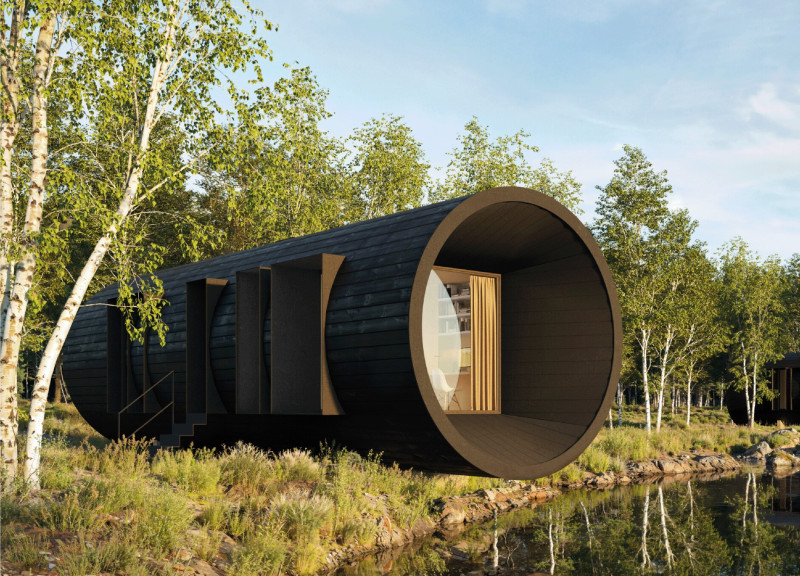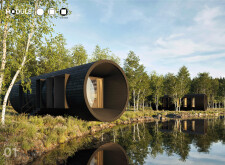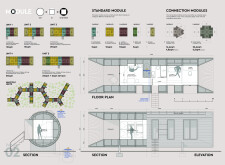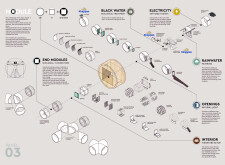5 key facts about this project
### Overview
MODULE is located in a serene wooded area adjacent to a body of water, focusing on contemporary modular living solutions that effectively engage with the natural environment. The design emphasizes versatility and spatial adaptability through innovative structures that prioritize functional living spaces while aiming to foster a connection with the outdoors.
### Spatial Arrangement and Functional Design
The project features a variety of modular units that can be configured to accommodate different living arrangements, ranging from one-bedroom options to larger multi-purpose spaces. Each unit incorporates essential areas for bathrooms, kitchens, and shared activities, reflecting a modern lifestyle that balances efficiency and comfort. End modules are designed as connective elements, enhancing the cohesiveness of the community while ensuring privacy within individual spaces. The overlapping geometric forms of squares and circles facilitate a dynamic arrangement that supports both private and communal experiences, promoting social interaction.
### Material and Sustainability Features
Key to the project's sustainability are the selected materials, which include wooden planks for exterior cladding, thermal insulation for energy efficiency, and extensive glazing to maximize natural light and views. Additional elements such as solar panels, waterproofing materials, and eco-friendly interior finishes further underscore the commitment to ecological responsibility. Sustainability is also addressed through rainwater harvesting systems and biological waste treatment, which minimize the environmental impact while supporting off-grid capabilities. These features highlight a thoughtful integration of renewable resources and self-sufficient systems, ensuring a responsible approach to contemporary living.























































